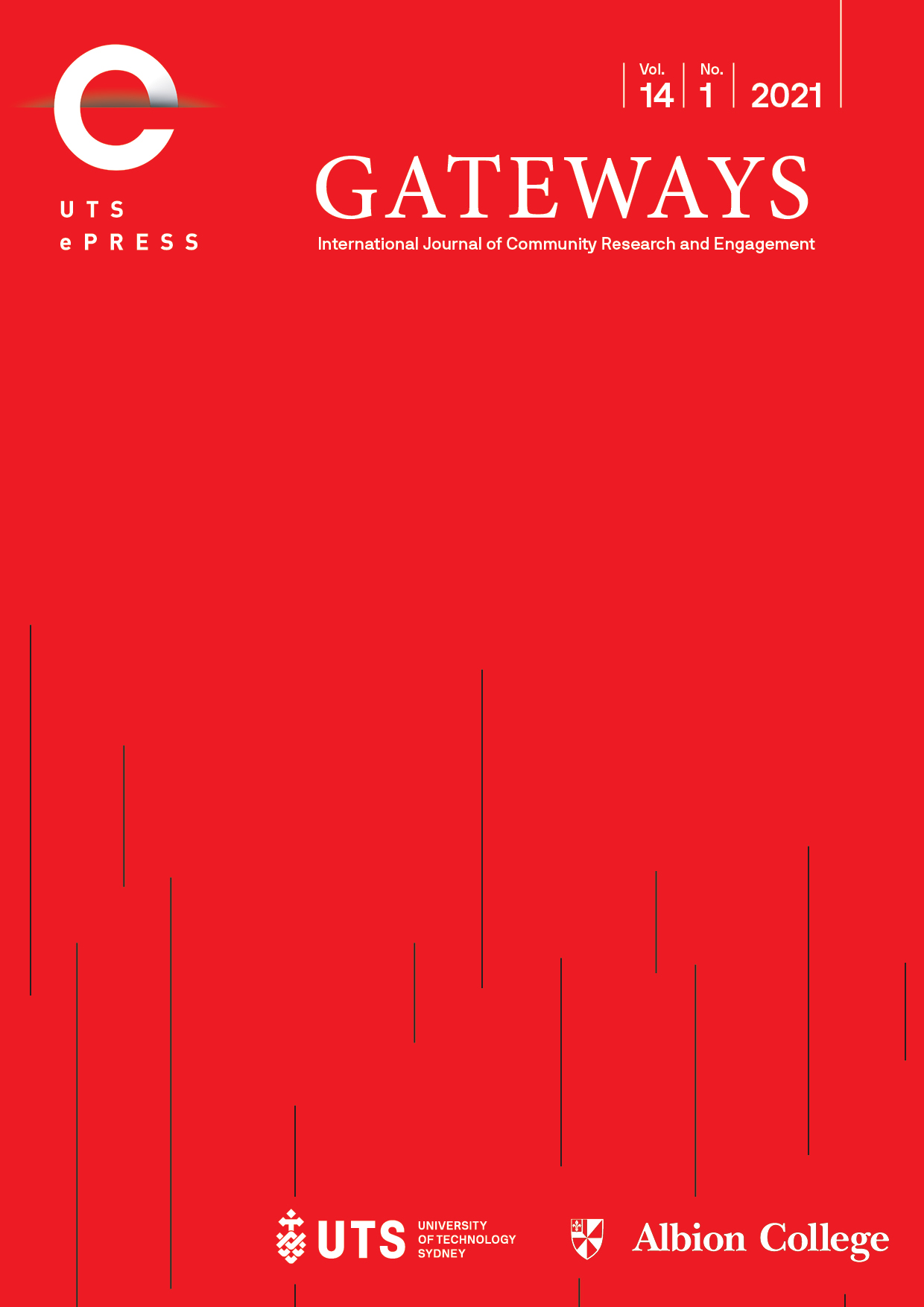The Irish Carnegie Community Engagement Classification Pilot: A critical analysis on culture and context from a community of practice approach
Main Article Content
Abstract
This article provides a reflective critique of the process undertaken to pilot the Carnegie Community Engagement Framework in Ireland between 2015 and 2016. Of particular interest to the authors is the cultural specificity of employing a US-centric self-assessment data capturing tool in a heterogeneous Irish context. Taking the reader through from conception of the idea to its execution and post-pilot reflections, we examine the cultural appropriateness and translatability of the tool to Irish higher education. To frame the discussion of the process, we employ the concept of a community of practice, as defined by Wenger (1998). This was adopted to promote a culture of collaboration in an ever-growing neoliberal system that promotes competition between institutions, rather than facilitating their co-construction of knowledge. In the analysis, we demonstrate how forming this community of practice allowed for a cohesive assessment of the challenges and opportunities that arose through the pilot process. This was particularly important since each participating institution had different motivations for engaging with the pilot. Reflecting with some distance, we consider the value that comes from operating as a community of practice, as well as some shortcomings that we identified as specific to this pilot.
Article Details
Issue
Section
Authors who submit articles to this journal from 31st March 2014 for publication, agree to the following terms:
a) Authors retain copyright and grant the journal right of first publication with the work simultaneously licensed under a Creative Commons Attribution License that allows others to share and adapt the work with an acknowledgement of the work's authorship and initial publication in this journal.
b) Authors are able to enter into separate, additional contractual arrangements for the non-exclusive distribution of the journal's published version of the work (e.g., post it to an institutional repository or publish it in a book), with an acknowledgement of its initial publication in this journal.
c) Authors are permitted and encouraged to post their work online (e.g., in institutional repositories or on their website) prior to and during the submission process, as it can lead to productive exchanges, as well as earlier and greater citation of published work (See The Open Access Citation Advantage Service). Where authors include such a work in an institutional repository or on their website (ie. a copy of a work which has been published in a UTS ePRESS journal, or a pre-print or post-print version of that work), we request that they include a statement that acknowledges the UTS ePRESS publication including the name of the journal, the volume number and a web-link to the journal item.
d) Authors should be aware that the Creative Commons Attribution (CC-BY) License permits readers to share (copy and redistribute the work in any medium or format) and adapt (remix, transform, and build upon the work) for any purpose, even commercially, provided they also give appropriate credit to the work, provide a link to the license, and indicate if changes were made. They may do these things in any reasonable manner, but not in any way that suggests you or your publisher endorses their use.
For Volume 6 (2013) and before, the following copyright applied:
Articles published by UTSePress are protected by copyright which is retained by the authors who assert their moral rights. Authors control translation and reproduction rights to their works published by UTSePress. UTSePress publications are copyright and all rights are reserved worldwide. Downloads of specific portions of them are permitted for personal use only, not for commercial use or resale. Permissions to reprint or use any materials should be directed to UTSePress.
References
Ball, S. J. (2016). Neoliberal education? Confronting the slouching beast. Policy Futures in Education, 14(8), 1046–1059. https://doi.org/10.1177/1478210316664259
Carnegie Foundation for the Advancement of Teaching and Learning (20150 Community Engagement Framework Available at: https://www.brown.edu/swearer/previous-classifications
Driscoll, Carnegie’s Community Engagement Classification: Intensions and Insights, Change, 2008
Easterby-Smith, M., Snell, R., & Gherardi, S. (1998). Organizational learning: diverging communities of practice?. Management learning, 29(3), 259-272.
Fuller, A., Hodkinson, H., Hodkinson, P., & Unwin, L. (2005). Learning as peripheral participation in communities of practice: a reassessment of key concepts in workplace learning. British educational research journal, 31(1), 49-68.
Hart, A., Davies, C., Aumann, K., Wenger, E., Aranda, K., Heaver, B., & Wolff, D. (2013). ‘Mobilising knowledge in community− university partnerships: what does a community of practice approach contribute?’. Contemporary Social Science, 8(3), 278-291.
Holland, C., Hughes, J., Leitch, R. (2016) Special Issue Introduction. Neoliberalism and education: Spotlight on Ireland. Policy Futures in Education, 14(8), 1041-1045. DOI: 10.1177/1478210316664264
Lyons, A., & McIlrath, L. (2011). Survey of civic engagement activities in higher education in Ireland. Galway, Ireland: Campus Engage.
Pearl, Andrew J. (2014) "Predicting Community Engagement? The Carnegie Foundation’s Elective Classification," Journal of Community Engagement and Scholarship: Vol. 7 : Iss. 2 , Article 6. Available at: https://digitalcommons.northgeorgia.edu/jces/vol7/iss2/6/
Wenger, E. (1998). Communities of practice: Learning as a social system. Systems thinker, 9(5), 2-3.
Wenger, E. C., & Snyder, W. M. (2000). Communities of practice: The organizational frontier. Harvard business review, 78(1), 139-146.
